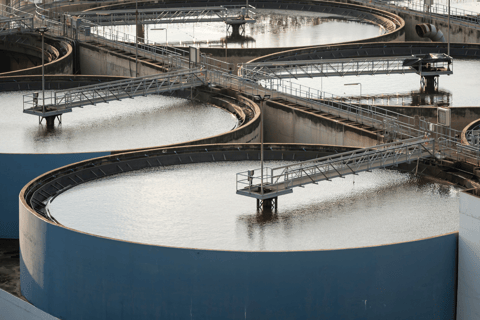 Water scarcity in the UAE is a significant problem that every organization and individual can take action to solve. Businesses can play an important role by reducing water consumption and waste. It’s not just the responsible thing to do but can also save costs and create a good impression within the community. Here’s what building managers need to know and do.
Water scarcity in the UAE is a significant problem that every organization and individual can take action to solve. Businesses can play an important role by reducing water consumption and waste. It’s not just the responsible thing to do but can also save costs and create a good impression within the community. Here’s what building managers need to know and do.
The Challenges of Water Scarcity
UAE’s water issues is a classic case of demand and supply causing double trouble. A 2017 World Bank report listed UAE as the fifth driest country in the world, with just 78 mm of annual rainfall.
Meanwhile, it’s in the top 30 countries for water use per person. Demand is growing with water consumption in Dubai rising every year from 2016 to 2022 and population growth and increased prosperity will likely continue that trend. Residents’ desire and need for green spaces also play a role in work and residential settings. While such areas are vital for well-being, they do require additional water to maintain.
Meeting that demand is a particular challenge. Around half of UAE’s water comes from groundwater sources where levels are declining. A further 42 percent comes from desalination programs. These are effective but energy-intensive, using up valuable resources.
With water so scarce, waste remains a significant problem for both businesses and individuals.
Why Should Businesses Take Action?
There’s a strong argument that reducing water use and avoiding waste is simply the responsible thing for businesses to do to help solve a national problem. This isn’t the only reason to do so, however.
For businesses with metered consumption, cutting use could significantly affect the bottom line. That’s particularly the case with “smart” or “intelligent” meters that let businesses track use in real-time, immediately seeing the benefits of changes or getting alerts about possible leaks.
Responsible water use is also just one environmental change businesses can make to attract consumers. A 2022 survey across Saudia Arabia, UAE, and Kuwait found 76 percent of consumers said they’d be more likely to buy from businesses trying to boost sustainability, while 68 percent were willing to pay more for their products.
How Can Facility Management Companies Help?
The good news is that you aren’t alone when you decide to tackle the water problem. Facilities management experts offer a range of services:
Water Audits
Water audits can give a detailed look at current water use, how that consumption compares to other organizations in comparable buildings, and can also suggest ways to reduce consumption.
Waste Water Management
Even with the latest techniques and equipment in place, it is of course unavoidable that businesses and buildings create waste water. To mitigate that, FM companies can make sure that this waste is taken away and dealt with responsibly. With sustainable water treatment methods, much of a building’s used water can be taken for waste water treatment and successfully reused.
Retrofitting
Existing equipment can be upgraded and retrofitted to reduce water use without having to refurbish or rebuild facilities. For example, engineers can add low-flow water flushes to toilets that reduce water use without compromising performance. Meanwhile, aerated taps and shower heads can mix air and water to reduce water use without users noticing any difference in flow pressure.
HVAC
Cooling systems are a particular source of water use in UAE commercial buildings. Regular servicing keeps these systems running more efficiently for longer, significantly reducing their water consumption. When the time comes when systems have reached the end of their useful lives, replacing them with modern, more efficient systems is a wise long-term investment, both in terms of saving money and environmental responsibility.
Leak Detection
Monitoring pipes for leaks has traditionally been a manual and labour-intensive process, but modern technology can achieve it in a more sophisticated and accurate way. Artificial intelligence systems hooked up to monitors can analyse flow patterns and quickly distinguish between natural variations and signs that something may require closer attention. They can also identify the specific location of a leak, reducing disruption in detection and correction.
Smarter Irrigation
Facilities management companies can share their expertise to suggest creative solutions, particularly in taking a big-picture look at a business. For example, smart irrigation systems that regulate water use and deliver water only where it’s required rather than indiscriminate spraying can significantly reduce water use, so can using ‘grey’ water from sinks in employee washrooms that can be recycled to irrigate green spaces. With the correct setup, you don’t need to worry about pollutants or long-term storage requirements.
Educating Building Users
Don’t forget about the human element. Facilities management experts can help develop programs to educate staff about ways to use water more efficiently and to reduce waste wherever they can. The key to such programs isn’t just their content, but also how to write and deliver them to be effective and engaging and to make sure that the key messages stick. Such education programs are often used in combination with posters around bathrooms and communal kitchens and wider communication campaigns to reinforce the main issues.
Conclusion
Water is arguably our most precious natural resource, but limited supply and growing demand in UAE means we can’t take it for granted. Businesses can do their bit by reducing use, setting an example, and attracting eco-conscious customers while cutting costs.
It’s a problem with many solutions and some will be more suitable and practical for your business than others. Facilities management companies can help you identify the best ways to take action and make a real change to your business.
To speak to an Imdaad expert on how to sustainably reduce your building’s water consumption or manage its waste water, contact us.

